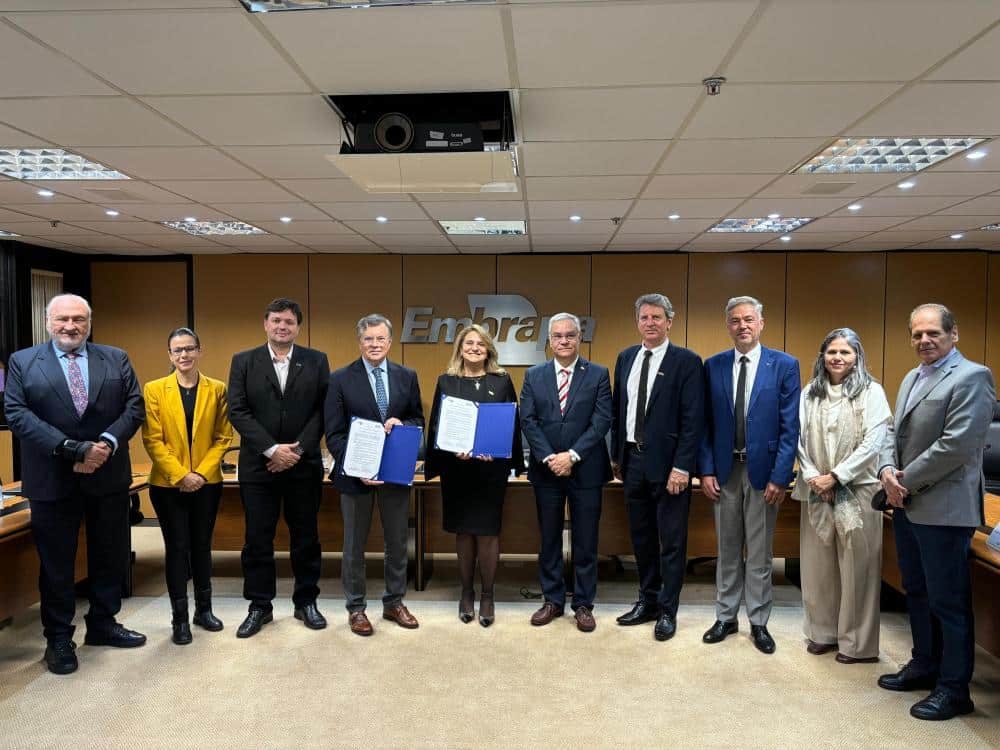Key Takeaways:
- Embrapa and IICA have agreed to enhance international cooperation, particularly with Africa, to promote sustainable agriculture and agricultural innovation.
- A new “José Ireneu Cabral Fund” with $100,000 seed capital will support exchanges between agricultural researchers, particularly between Africa and Brazil.
- Embrapa and IICA plan to collaborate on global platforms such as COP29 and COP30 to advance the positioning of sustainable agriculture.
- The partnership aims to include small and medium-sized producers in agricultural innovation, addressing challenges related to sustainability, food security, and climate change.
Enhanced Cooperation Between Embrapa and IICA
The Brazilian Agricultural Research Corporation (Embrapa) and the Inter-American Institute for Cooperation on Agriculture (IICA) have reinforced their alliance to promote sustainable agriculture and agricultural innovation on a global scale. During a meeting at Embrapa's headquarters in Brazil, Embrapa President Silvia Massruhá and IICA Director General Manuel Otero signed a commitment to develop an international joint work agenda aimed at strengthening agricultural research and enhancing the global positioning of sustainable agriculture.
Launch of the José Ireneu Cabral Fund
As part of this renewed collaboration, IICA announced the creation of the “José Ireneu Cabral Fund,” which will begin with an initial seed capital of $100,000. This fund is designed to facilitate the exchange of agricultural researchers, with a focus on bringing African researchers to Brazil to collaborate with Embrapa on the development of regenerative tropical agriculture. Additionally, plans are underway to send Brazilian researchers to Central America and the Caribbean, regions that, like Brazil in the past, need to bolster their agricultural sectors to enhance local food production.
Global Collaboration and Engagement
Embrapa and IICA also committed to working together in key international forums, including COP29, to be held in Azerbaijan in November, and COP30, which Brazil will host in 2025. IICA's Director General invited Embrapa's President to participate in the Home of Sustainable Agriculture in the Americas Pavilion, which IICA will install at these global events to promote sustainable agricultural practices.
Otero emphasized the importance of the partnership, noting that Latin America and Africa, due to their significant agricultural potential, are crucial to the future of global food security. He highlighted Embrapa's role as a key provider of science and innovation in this context, stating, “Our continent produces 30% of the world’s food. It is time for a newfound connection between agriculture and the environment, with the inclusion of new stakeholders, transformations, and digital cooperation. Embrapa is a fundamental partner that provides science and innovation. And when it comes to food security, Latin America and Africa, due to their agricultural potential, represent the present and the future. In Africa, when Brazil is mentioned, Embrapa is mentioned.”
Addressing the Challenges of Sustainable Agriculture
Silvia Massruhá, President of Embrapa, praised IICA’s role in driving collective action and agricultural innovation, particularly in addressing the challenges posed by sustainability, food security, and climate change. She pointed out that Brazil’s agricultural sector includes millions of small and medium-sized producers who need access to technology to improve their sustainability and increase their income. Massruhá emphasized the importance of partnerships like the one with IICA in overcoming these challenges, stating, “Only 10% of Brazil’s five million rural producers are large exporters, and we have three million who need to increase their income. For that, they need access to technology to reduce costs, improve management, and be sustainable. The challenge is great, but so is the motivation, and the role of partners like IICA is key.”


